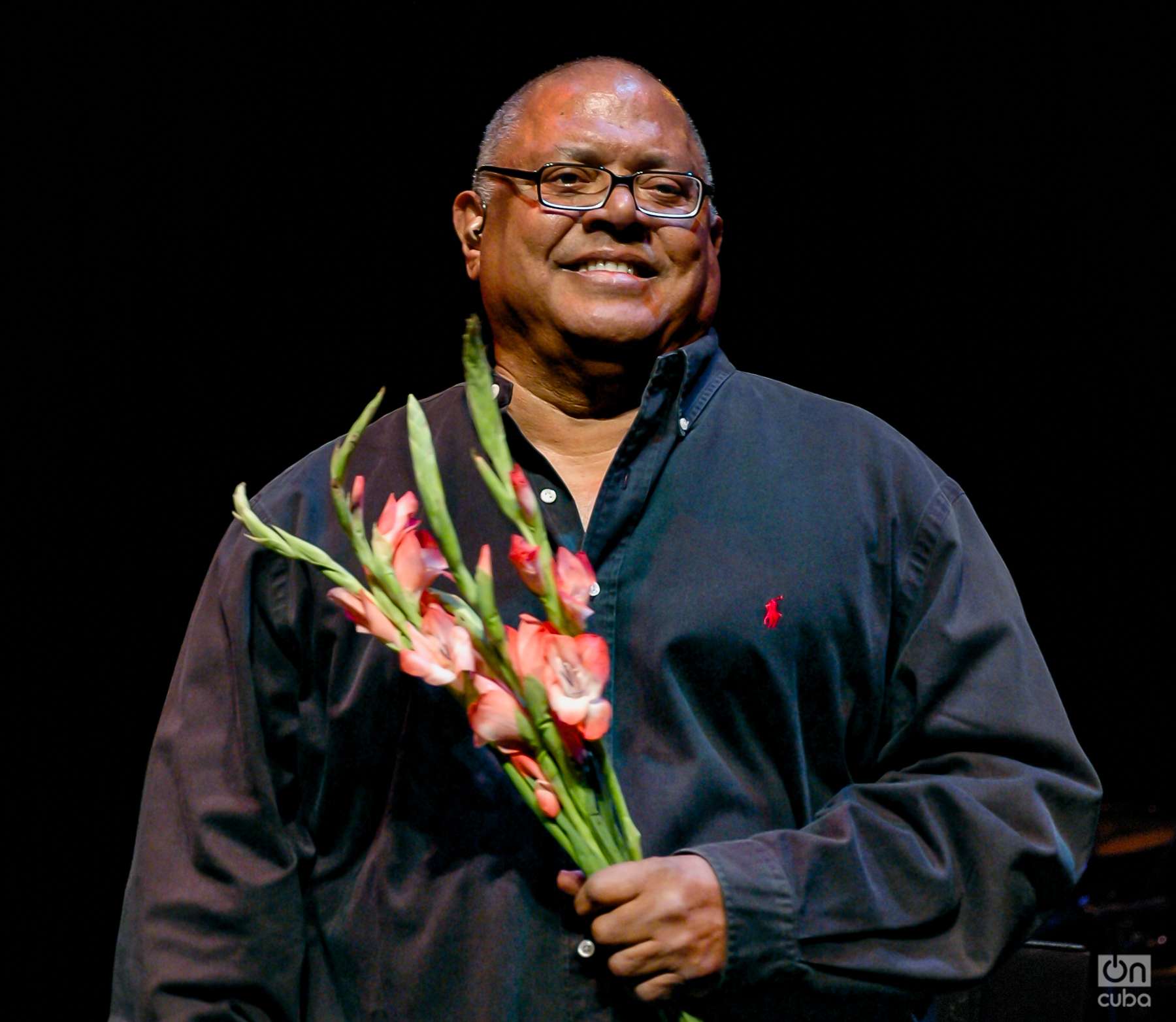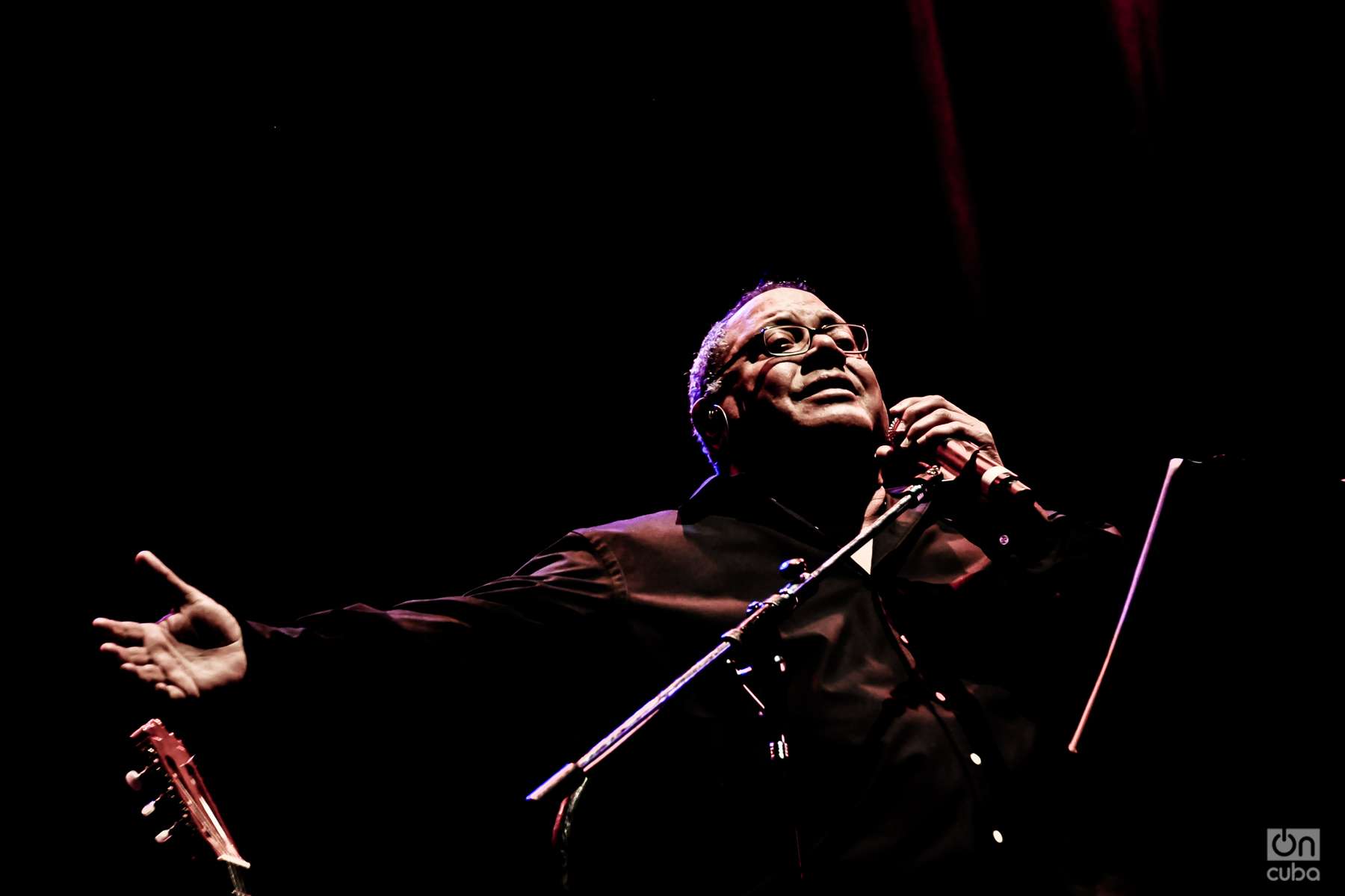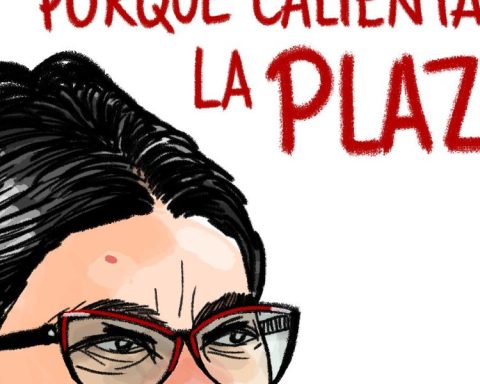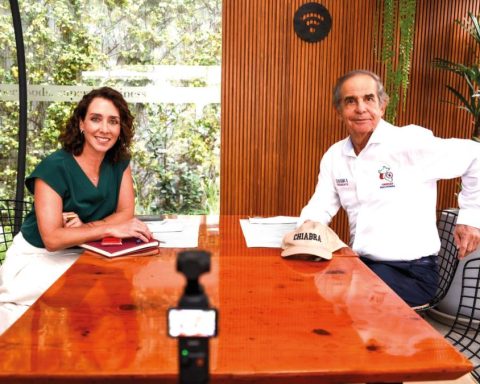Eternally, Pablito
By Alexis Diaz-Pimienta
Pablo Milanes, Pablito,
Cuban idol,
with the guitar in the hands
and the view to infinity.
Paul voice-manuscript.
Pablo of crystalline light.
Pablo, street and corner
of several generations:
thanks for so many songs
(for the soul, medicine).
“I don’t ask you”, Pablito,
“that you lower me a star
blue”, or that you talk to her
of what I need.
I only ask you – and I invite you
a— may you live much longer.
you will never give up
—not today, not then, not after,
Mr. Pablo Milanés—
the “wide space” in which you are.
This idol that you see today
challenging stubborn death
“It’s not perfect, but it’s close.
to what I always dreamed of”.
Seated and standing singer.
Man with the upright forehead.
Take care of yourself. take care of us Takes care
everything you’ve ever been.
“I prefer you shared
rather than empty my life”.
I owe you a good part
of my childhood-adolescence.
I owe you the transparency
in life and in art.
And the voice as a banner.
And the music that lulls.
I must be the one who doesn’t run away
who does not give in and does not soften.
And looking for my “Yolanda”
forever in yours
Dear Pablo, get better.
Dear Pablo, listen to me.
Even if you see the sunset
look towards the sun, become aurora.
Dear Pablo, it is now
When I need you most.
The whole of Cuba, with all the shouting,
with your voice in the throat
raise candles and sing
Eternally, Pablito!
Pablito is Cuba, Pablitooo!
Eternally, Pablito!

with pablito
By José María Vitier
Those of us who learned to love by listening to his songs are alert, praying for his health and recovery. We need his voice pregnant with jugglery essences, his voice from the patio, serenade and garden, but also from a stronghold and solidarity, his voice from an infinite island and mainland and solitudes.
An inimitable and distributed voice that resonates in every Cuban wherever they listen to it. A sweet and at the same time powerful voice. As it has to be the singing voice, sonorous or dissonant, of all the revolutions to come.
The essential that her voice proclaims is a mystery that does not cease. A Cuban way of being and dreaming vibrates in it, a precious alchemy of intimacy and outdoors. Her voice is a hug. A plenitude, a serene proclamation, like a tree that does not renounce its root of homeland.
For all of this we are with him, at this time, with his precious family, that we are so many, wanting him to feel us by his side, hugging him and embracing so many things, that there is no room for anything else but his songs.
![]()
To the people, what belongs to the people, dear Pablo
By Julio Cesar Guanche
Pablo Milanés has said of himself that he is a “feverish lover of the popular”.
In the film The first charge to the machete, Pablo plays a bard, a central figure in Cuban culture. In A bride for David, another popular cult classic, Elena Burke Sings Pablo. “Love me as I am” has an interpretation there that completes the meaning of the unforgettable.
In this search, Pablo was doing feeling, guajira, son, jazz, to make a trova that is many things at once. He sang with his teacher, Miguelito Cuní, who considered him “an outstanding sonero”.
Long before the Buenavista Social Club, it was Pablo who “rescued” the old masters of Cuban popular music on the album Years. There is no nation, nor national culture, that survives without bridges. Pablo is between generations and genders.
Omara Portuondo introduced Pablo and Silvio knowing that they had to meet, and she would sing songs by both of them. Later, Pablo was a crucial figure of the Grupo de Experimentación Sonora (one of the great monuments of Cuban music of all time) and he was the founder of the Nueva Trova Movement, which connected popular songs to social and political themes and thus became from a place in the world.
Along the way, he sang to the peoples of Latin America, to Salvador Allende, to Nicaragua, to Puerto Rico, to Viet Nam, to Mandela. About the United States, he once said: “The United States is the absolute owner of the world, it is the first terrorist organized through the State.” “I will step on the streets again” is a popular democratic anthem on the continent.
Mulatto, he always had a racial conscience. He used that beautiful pendrú, in times when there was no public debate about racism in Cuba, and sang Angela Davis. Later, he continued to denounce, until today, racism in Cuba. His support for Gerardo Alfonso, Alberto Tosca, Xiomara Laugart, Marta Campos, and Raúl Torres has not been by chance. He did it conscientiously, but without “racial” exclusivism when it came to collaborating and creating.
Haydée Santamaría, after whom she named one of her daughters, asked her to set verses by Martí to music. She did it in a very short time. Pablo connected with Martí’s poetry like no other. It is his favorite record, he said. One night in Quito, with friends from all over Latin America, a friend sang “Love from the big city” with her music. They all knew her. With similar beauty, she played Vallejo, or Guillén.
For right-wing fundamentalists, Pablo has often been a man of the “Cuban regime.” He himself would explain himself like this: “Yes, because I am a standard bearer of the revolution, not of the Government. If the revolution gets stuck, it becomes orthodox, reactionary, contrary to the ideas that originated it; one has to fight”.
For left-wing fundamentalism —a young Spanish woman, better known in Cuba than in her land, has written the most recent chapter of that saga—, Pablo must be judged only by his attitude towards the Cuban government. Certainly, Pablo is not the young man he was in the 1960s. Neither is he what is called today, without any critical care, the “Cuban Revolution.”
In any case, it is a fact that Cuba’s “giant shadow” over Latin America after 1959, until today, owes a lot to Pablo (and Silvio).
Outside of that smoke, there are more than forty solo albums, traversed by themes of love, old age, homeland, struggle, hopelessness, happiness and the many forms of agony typical of Unamuno. There is a social background in all of this.
Pablo also challenged Cuban “manliness”, that pathetic thing to which the Cuban State itself ascribes, with songs that assure “I prefer it shared”, or “we are not God, let us not make mistakes again”, in respect to the option for the same sex.
He did it who was in the Umap, escaped from it, spent two months detained in the Cabin, was sent to a punishment camp, and always expected public apologies for that national ridicule.
At the age of 22, he wrote “And as for the beloved death, I will tell him if one day I find it, goodbye, I have no interest in knowing anything about you.” She can repeat it to her today, that she struggles between life and death.
“Poor singer” has been more than a motto for Pablo. He is a poet of the popular Spanish language. In Cuba he sits at the table with Sindo Garay, Manuel Corona, Teresita Fernández and Ñico Saquito.
To the people, what belongs to the people, dear Pablo.














